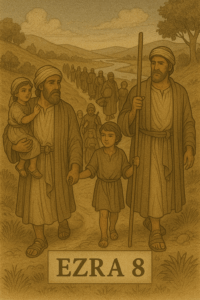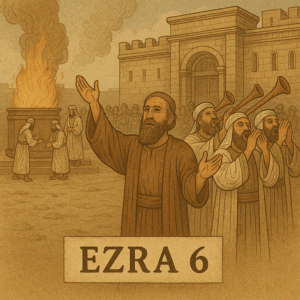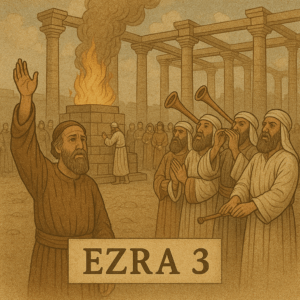Beyond convenience: The importance of centralized worship in Leviticus 17.
Leviticus 17 establishes the importance of centralized worship for the Israelites. While some might interpret it as mere centralized control, the chapter offers a deeper exploration of the rationale behind this practice, revealing its connection to maintaining the covenant with God and fostering a strong community.
A nation united before God: The role of the Tabernacle.
The chapter emphasizes that sacrifices should only be offered at the designated location – the Tabernacle. This practice ensured adherence to proper rituals and fostered a sense of unity as the Israelites gathered for worship in a central location.
The significance of blood: Symbolism and covenant.
Leviticus 17 places particular emphasis on the concept of blood. The blood of sacrificed animals was seen as representing life itself and served as a symbolic offering to God, reaffirming the covenant between Him and the Israelites.
Understanding the context: Historical and cultural influences.
It’s crucial to remember that these practices were embedded within a specific historical and cultural context. The concept of centralized worship aimed to distinguish the Israelites from surrounding cultures and solidify their unique identity as God’s chosen people.
Beyond the ritual: Unveiling deeper meanings.
Modern interpretations of Leviticus 17 vary. Some scholars emphasize the importance of following established rituals and respecting the symbolism associated with them. Others explore the concept of a central gathering place as a means of fostering community cohesion and shared identity.
Modern relevance: Respecting rituals and building community.
While the specific practices of Leviticus 17 may not translate directly to our modern world, the underlying themes offer valuable insights:
i. Importance of rituals: Recognizing the potential of rituals to create a sense of shared meaning, tradition, and connection within communities.
ii. Respecting symbols: Understanding the power of symbols used in various traditions and approaching them with respect, even if their literal meaning differs from our own.
iii. Building strong communities: Acknowledging the potential for shared practices and traditions to strengthen community bonds and foster a sense of belonging.
Conclusion.
Leviticus 17 offers a window into the importance of centralized worship and symbolic practices within the Israelite community. By exploring the historical context, interpretations, and potential lessons beyond the literal, we gain a deeper understanding of the role rituals and symbols play in fostering strong, cohesive communities.




